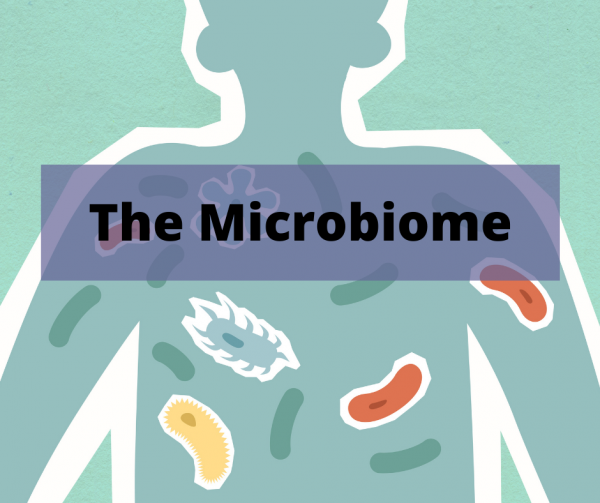Do you have a health condition or nagging symptom or perhaps a reoccurring infection of some sort?
Do you feel that you’ve tried EVERYTHING to get healthy?
Or, maybe you’re stuck and you don’t want to follow that restrictive diet plan any longer…
######
What if I told you that there may be something that could help… That you could go ‘up stream’ to address an underlying imbalance in the body that is keeping you from reaching your health goals…
You’ve probably already heard about it…. >>> THE MICROBIOME
What is the Microbiome
The microbiome is a community of microorganisms (such as fungi, bacteria and viruses) that exist on and in the body – the largest community resides in the gut. Each person’s microbiome is entirely unique, as individual as a fingerprint. These groups of microorganisms are symbiotic and change in response to a host of environmental factors, such as exercise, diet, medication and other exposures.
How the Microbiome Impacts Our Health
Information about how the microbiome impacts our health continues to unfold – it wasn’t generally recognized to even exist until the late 1990s. For that reason, many health practitioners are not that well-versed in its potential as an avenue towards health.
The bacteria in the gut microbiome help digest our food, regulate our immune system, protect against other bacteria that cause disease, and produces vitamins including B vitamins B12, thiamine and riboflavin, and Vitamin K, which is needed for blood coagulation.
In fact, if you were to google ‘Microbiome and ANY SYMPTOM, AILMENT OR ILLNESS’ you have a good chance of coming across a recent study and/or published paper about the connection between the gut microbiome and whatever ails you.
Is My Microbiome Healthy?
You might be wondering, if your microbiome is supporting you or not. Here’s a brief list of what can leave you with a less than optimal balance between good and bad microbes:
- Antibiotics
- Thank goodness we have them – they save lives – BUT they also indiscriminately kill off all bacteria good and bad
- Poor diet
- Processed food lacks the fibre needed to feed the bacteria, while often containing too much sugar, bad oils, and chemicals that can lead to inflammation in the gut
- Stress
- Can reshape the gut bacteria’s composition by impacting hormones and increasing inflammation
- Alcohol consumption
- Can alter the balance between good and bad microbes while increasing the incidence of gut permeability (leaky gut)
- Chemicals in environment and food
- Studies point to how the gut microbiome can be easily disturbed upon exposure to a range of toxic environmental agents
As a holistic nutritionist and Certified Microbiome Educator – I use a comprehensive approach to help my clients with their specific health concern(s), combined with a gentle gut microbiome protocol.
Basic Breakdown of the Microbiome Protocol
- Lowering inflammation in the gut and build up the mucosal lining
- This often includes removing a few foods to see if they don’t ‘agree’ with the client – this is intended to be short term – unfortunately for some it can take longer… 🙁
- Adding in omega 3’s and other gut-soothing foods (slippery elm, marshmallow, DGl, chia) to name a few…
- Foods and sometimes supplements to feed the microbiome
- Commonly known as prebiotics, which includes, but not limited to a wide range of vegetables, fruits and grains
- Fermented foods and supplements that help to increase good microbes in the gut
- These need to be consumed daily if possible, because we know now that these ‘new’ microbes are transient and usually do not take up permanent residence.
- Gentle protocol of antimicrobials
- Depending on the person this could be a slow introduction of a formula, an individual antimicrobial and/or antimicrobial foods
We’re all different (biochemically unique), the science behind how the microbiome impacts our health is consistently emerging. At this time, we do know that gently increasing the diversity of microbes, building the quantity of health supporting bacteria, while lowering inflammation in the gut – can positively impact your health.
And, the good news is – it can be done gently and safely.
To learn more, Click HERE to schedule a free 20 minute discovery call with me!
REFERENCES:
https://www.genome.gov/genetics-glossary/Microbiome
https://depts.washington.edu/ceeh/downloads/FF_Microbiome.pdf
https://www.ncbi.nlm.nih.gov/pmc/articles/PMC6835660/
https://www.ncbi.nlm.nih.gov/pmc/articles/PMC7213601/#:~:text=Additionally%2C%20stress%20and%20depression%20can,species%20may%20encourage%20dysregulated%20eating.
https://jneuroinflammation.biomedcentral.com/articles/10.1186/s12974-018-1328-9#:~:text=In%20the%20intestine%2C%20alcohol%20use,possibly%20elsewhere%20in%20the%20body.
https://www.ncbi.nlm.nih.gov/pmc/articles/PMC7151736/
https://gladstone.org/news/strains-not-species-gut-microbes-hold-key-health-and-disease
https://journals.plos.org/plospathogens/article?id=10.1371/journal.ppat.1009056
https://www.ncbi.nlm.nih.gov/pmc/articles/PMC6314516/

